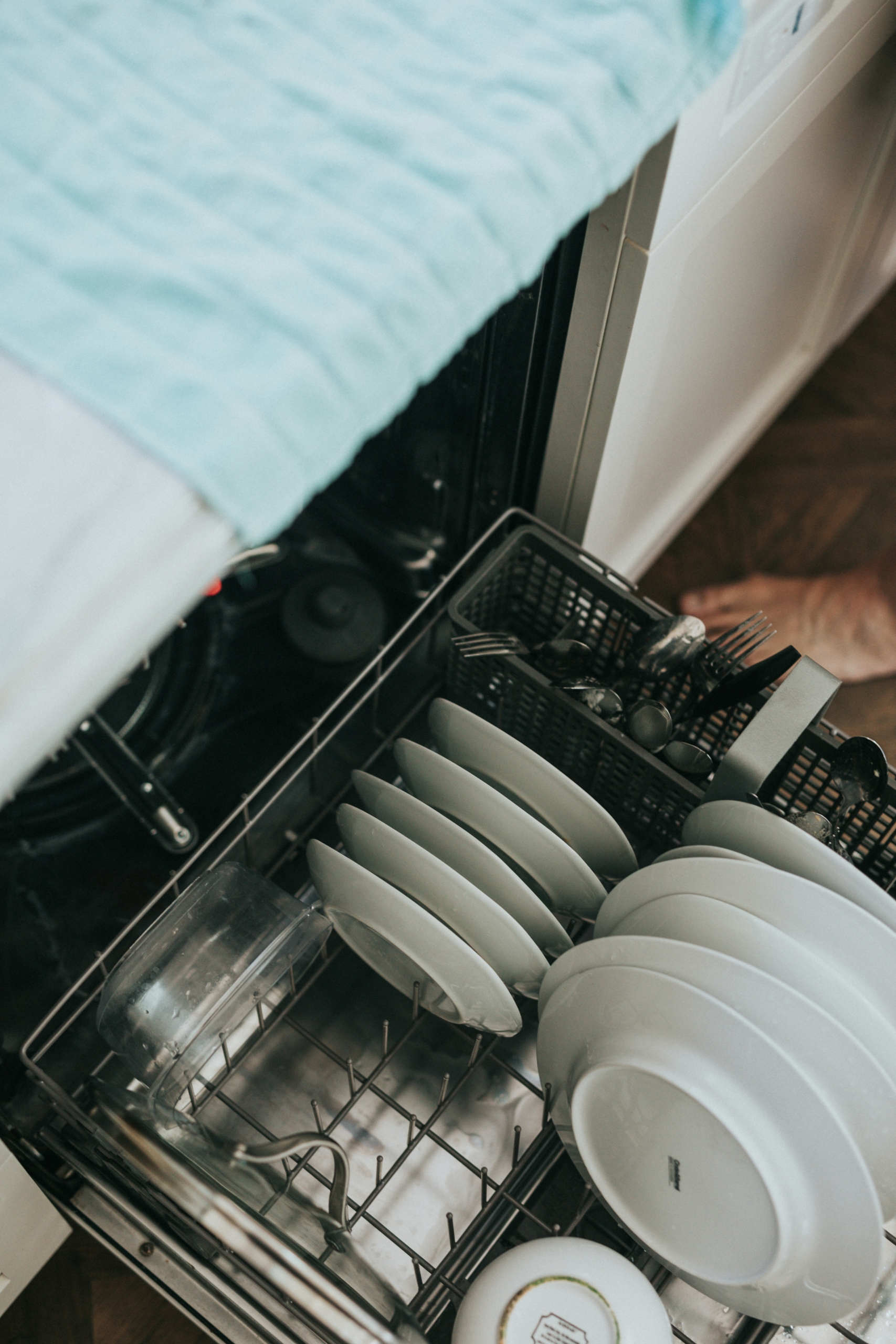
Cleaning the Dishwasher – Effective Tips and Tricks
Why Cleaning the Dishwasher is Important
Keeping your dishwasher clean is not just a matter of hygiene; it is an important part of extending the life of your household appliance. A regularly cleaned dishwasher works more efficiently, uses less energy and prevents unpleasant smells.
The Effect of Irregular Cleaning on Dishwasher Performance
Irregular or improper cleaning of your dishwasher can lead to the accumulation of food residues, limescale and grease. This in turn can cause clogged coil arms, filters and drainage systems, reducing the efficiency of the machine. A poorly maintained dishwasher can also become a breeding ground for bacteria and mold, which negatively affects the cleanliness of your dishes.
Step-by-Step Guide to Cleaning Your Dishwasher
Regularly cleaning your dishwasher doesn't have to be an extensive task. Follow these simple steps to ensure your machine is always in top condition.
Preparations Before Cleaning
Before you start, make sure the dishwasher is empty and all loose items, such as cutlery baskets and dish racks, are removed. This gives you easier access to all parts of the machine that need cleaning.
Cleaning of filters and spray arms
Start by removing the filter and cleaning it under running water. Use a soft brush to remove stubborn food particles. Also check and clean the spray arms. Make sure the water jets can pass freely through their nozzles to ensure an even distribution of water during the wash cycle.
Removal of lime and food residues
After cleaning the filters and spray arms, it's time to focus on the inside of the machine. Use a damp cloth to wipe the sides and door. To effectively remove limescale and food residues, you can run an empty dishwashing cycle with a special cleaning product adapted for dishwashers.
Natural Detergents for the Dishwasher
For those who prefer eco-friendly solutions, there are several natural alternatives that are effective in keeping your dishwasher clean and fresh.
Use of vinegar and bicarbonate
Vinegar is an excellent natural cleaner that can help dissolve limescale and remove bad smells. Place a bowl of vinegar on the top shelf and run a hot dish cycle. After that, sprinkle baking soda on the bottom of the machine and run a short cycle to neutralize any remaining odors and give the machine a fresh shine.
Benefits of Citric Acid for Cleaning
Citric acid is another natural and effective cleaning agent. It is particularly good for removing hard water deposits and giving a brilliant shine to the inside of your dishwasher. A periodic cleaning with citric acid can keep your machine in top condition.
How often should the dishwasher be cleaned?
To keep your dishwasher in optimal condition, it is important to have a regular cleaning routine. This ensures that your machine works efficiently and extends its lifespan.
Daily, weekly and monthly maintenance of the dishwasher
A daily quick inspection and removal of food debris after each wash cycle can prevent major problems. You should check and clean the filter and spray arms weekly. A more thorough cleaning of the whole machine, including the use of detergents, is recommended on a monthly basis to prevent limescale build-up and bad smells.
Tips for Preventing Dirt and Odors
By following a few simple tips, you can prevent the build-up of dirt and unpleasant smells in your dishwasher.
Proper use and load of the dishwasher
Make sure you don't overload your dishwasher and place your dishes correctly for optimal cleaning. It is also important to regularly clean seals and edges, where food debris and grease can accumulate.
The importance of regular descaling
If you live in an area with hard water, it is particularly important to descale your dishwasher regularly. This not only prevents limescale build-up but also improves machine performance and efficiency.
Troubleshooting and maintenance of the dishwasher
To ensure that your dishwasher always works properly, it is important to know some basic troubleshooting techniques.
Management of common problems and solutions
If your dishwasher is not working properly, start by checking the most common causes such as clogged filters, incorrectly loaded dishes, or problems with the water intake. Often a simple adjustment or cleaning can solve the problem.
FAQ - Cleaning the dishwasher
How often should I clean the filter in my dishwasher?
Answer: It is recommended to clean the filter at least once a week. By removing and rinsing it off under running water, you prevent food residue and grease from building up and affecting the performance of the machine.
Can I use regular vinegar to clean the dishwasher?
Answer: Yes, regular white vinegar is excellent for cleaning the dishwasher. Place a bowl of vinegar on the top shelf and run an empty wash cycle. It helps to dissolve limescale and remove bad smells.
What natural products can I use besides vinegar and bicarbonate?
Answer: Citric acid is an excellent natural alternative. It is effective against limescale build-up and can add an extra touch of freshness to your dishwasher.
How do I prevent bad smells in my dishwasher?
Answer: Regular cleaning is key. Make sure to clean and descale the dishwasher regularly. Using natural cleaners like vinegar or citric acid can also help neutralize bad odors.
What should I do if my dishwasher does not clean the dishes properly?
Answer: First check that the filter and spray arms are not clogged. Also make sure that you do not overload the machine and that the disk is correctly positioned. If the problem persists, it may be time for a professional service.



